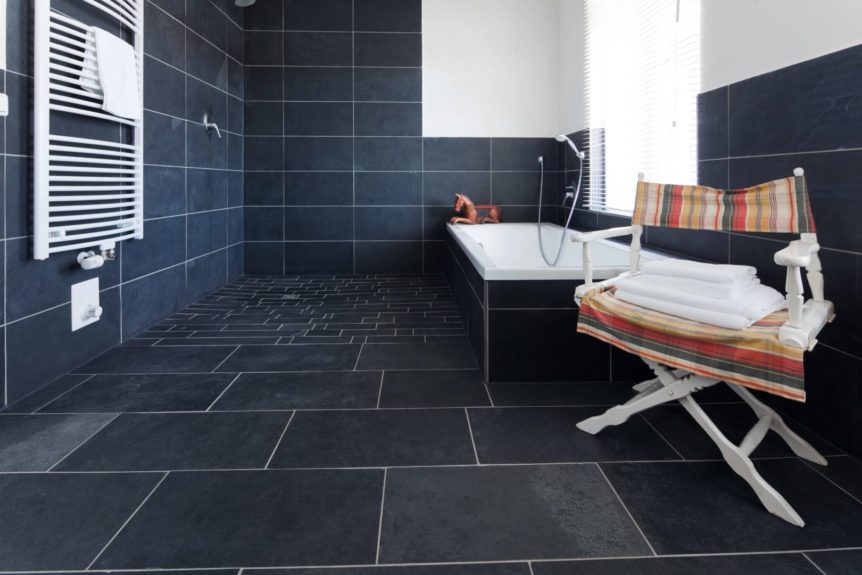
Pro & Cons of Natural Slate Flooring
Natural slate can bring a sense of strong, functional beauty to any home. But as with any flooring, there are pros and cons. If you’re considering slate as your flooring option of choice, check out our list to determine if it’s the best option for you!
Pros of Slate Flooring
- Durable! Slate is one of the strongest natural stone flooring materials. It’s resistant to cracks, scratches, breaks, and chips. While it does need regular sealing, it’s an excellent option for bathrooms, kitchens, and heavy traffic areas.
- Long-lasting! Slate can last for decades if properly maintained.
- Unique & beautiful! There are so many color options available with slate, from solids to combinations. And because it’s a natural material, no one piece will be the same as another!
- Ups the value of your home! Slate is considered a more upscale flooring material, so while its price can be high, it will usually add real estate value to your entire home.
- Reparable! In some cases, a tile can be damaged. Thankfully, slate tiles are easy to remove and replace, though keep in mind: due to its natural state, you may not find an exact match if you don’t have extra on hand.
- Great for radiant heating! Slate is the perfect medium for radiant below-surface coil heating systems.
Cons of Slate Flooring
- Expensive. Slate tiles usually cost from $4 to $10 per square foot, and the cost of professional installation can add an additional $10 to $15 per square foot.
- Difficult to install. Slate tile is difficult to cut without special tools, and the subfloor and underlayment preparation must be done very carefully to prevent cracking of the grout joints or the tiles themselves. If you plan to have it installed upstairs, you may even need to reinforce the floor structure in order to support the flooring!
- Needs maintenance. When first installed, the tiles must be sealed with a penetrating sealer in order to close tiny pores, and then a barrier sealer which creates a protective surface. Both sealers may need to be reapplied every year or so. Grout lines are also prone to crack, and they can be susceptible to stains, mold, and mildew – especially in damp locations.
- Can be uncomfortable. Slate tiles come in different textures. Polished slate is smooth, but some forms have a rough, uneven texture.
- Cold, hard surface. While great flooring if you have radiant heating, slate can be very cold without it. Due to its hardness, you’ll also want to keep it out of kids’ rooms.
- Inconsistent. As mentioned, slate is unique, and therefore can make future repairs difficult if you desire uniformity.
Final Thoughts
Slate tiles are durable and beautiful materials, but be willing to first consider its high cost and maintenance needs before purchasing and installing. Check out our flooring page for more information!




